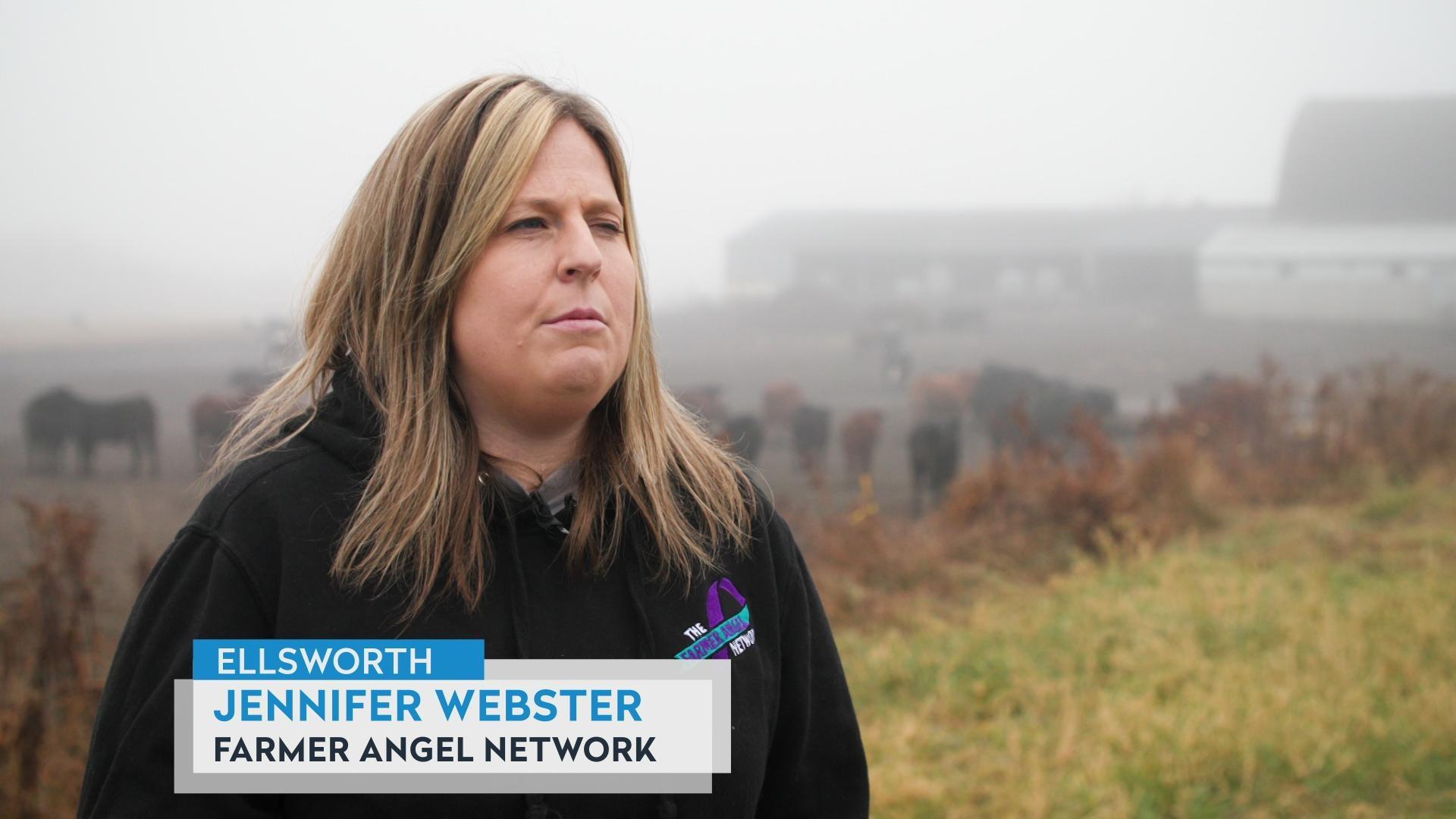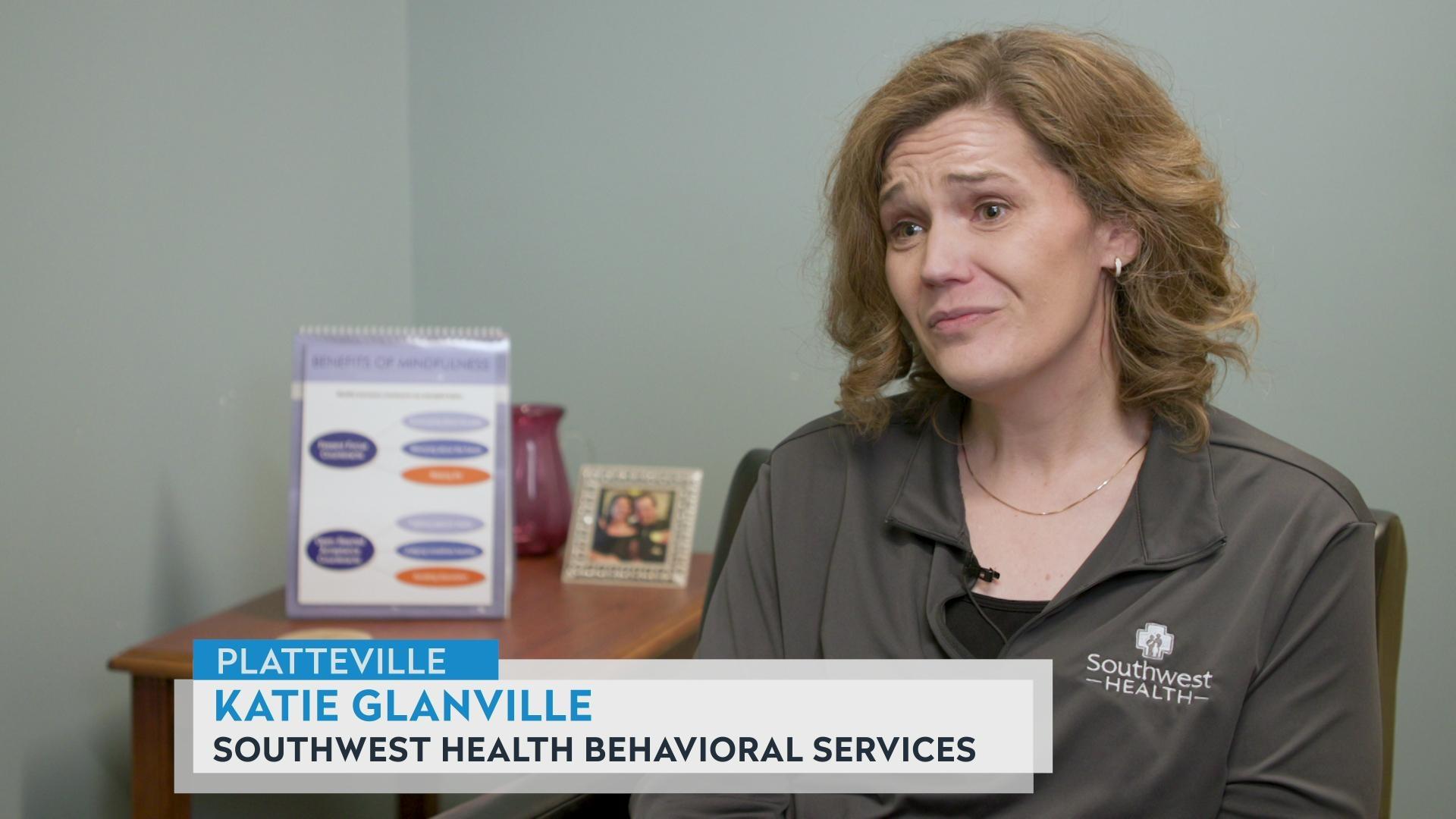Frederica Freyberg:
The Republican majority in the house of representatives has its own ideas about how to approach the ledge of the fiscal cliff, as well as how to prescribe health care to states that, like Wisconsin, are leaving it to the feds. We walk across the aisle now and welcome 8th district Republican congressional Reid Ribble, who is in Washington. Thanks very much for joining us.
Reid Ribble:
I’m happy to be here. Thanks for having me.
Frederica Freyberg:
What is your reaction to Governor Walker’s decision to not develop a state-based exchange or even partner with the feds on one?
Reid Ribble:
Well, I think that the state legislature, the state senate and the governor have to come up with some conclusion on how they’re going to implement the federal health care law. And I believe that they don’t need Monday morning quarterbacking from a member of congress. But that they should go ahead and proceed best the way they see for Wisconsin. I think that’s what the governor will do.
Frederica Freyberg:
Do you believe that the federal government will be able to put in effect an exchange for Wisconsin, that will be good for Wisconsin?
Reid Ribble:
Well, listen, I think the less the federal government is involved in health care the better, and so I might not be the best person to ask that question. You know, the Affordable Care Act is still being written. The rules are still being written. The regulations are still being written. They’re going to come up with the plan that they think is best moving forward. And then the state of Wisconsin will ultimately make a determination as to whether they made the right choice or not.
Frederica Freyberg:
Now on the fiscal cliff, which is quickly approaching, what is your position on tax increases to raise revenue?
Reid Ribble:
Well, my take on the entire tax thing is, I agree that part of the solution going forward, and I’ve said this for two years now, that everything ought to be on the table. And that includes revenue. Typically our side doesn’t want to talk much about revenue, but we have to look at revenue as part of our solution. How we get there, there might be some differences of agreement, and I think that’s what they’re working out over at the White House now. But there’s ways that we can increase revenue without necessarily effecting rates. It’s never been my contention that tax rates correlates much with revenue. What correlates with revenue is economic growth and tax deductions.
Frederica Freyberg:
So what do you think about the pledge from President Obama that any plan has to include increasing taxes on the high-income earners?
Reid Ribble:
Well, you know, I think that every side puts out their starting point. Now I was encouraged today in the press conference after the meeting with the White House, that both Republican and Democrat leaders came together and they did their press conference together. Now that’s an unusual thing. And so that’s an encouraging sign. I think each side is going to lay out what they think the reforms on taxes ought to look like. The president has said it’s got to include tax increases on the rich. And I don’t think that there’s going to be a lot of opposition to that per se from our side, depending on how that’s accomplished and how it’s done. And so I think we’ll let this process work its way out. And we’ll see where they end up. But I was encouraged by the responses this afternoon.
Frederica Freyberg:
So that’s the tax piece of this fiscal cliff. What about this spending cuts? Do you expect the sides to be able to come together on this. And if not, what happens?
Reid Ribble:
Yeah. I don’t know what’s going to happen. It would be bad if it didn’t happen. So I think that the pressure is on for leaders to lead at this point. And I think both sides heard loud and clear from the electorate that they want a solution to this, the voters want a solution. They want both sides to work together, and they put people in place that they hope will be able to do that. On the spending side of things, just like our side has to lay down a sword and sheath their sword on revenue, their side is going to have to be willing to talk about the large entitlement programs like Medicare, and it’s going to be interesting to see what they’re willing to come up and what offer they have on the spending side. Because we know that spending is the predominant problem. If we look at revenues, revenues today are about the same as they were just in 2005. And so that’s not that far back. And yet spending is dramatically increased over the same period of time. So spending has to be a big part of this discussion for sure.
Frederica Freyberg:
You talk about spending and you talk about it in terms of the entitlement programs. What do you think Paul Ryan and Mitt Romney’s loss in the election says about American’s support of his budget and its provisions as they relate to Medicare and Medicaid?
Reid Ribble:
Well, I don’t think that the election, as far as President Obama goes, spoke to it at all. I think the election that mattered was what they did in the house of representatives and they let the Republicans in charge. I think that speaks more toward what the American people think about the house plan and the house budget. They actually affirm that budget by putting a Republican majority back in the house of representatives. Let’s face it. The only people that actually passed a budget in the last two years has been the house of representatives. I think, in fact, maybe there was an endorsement of what some of those ideas were. At least the endorsement of, hey, listen we have to have this conversation. That’s what I think we’re hearing. They might not necessarily agree with every line item and every idea regarding Medicare or even defense spending, something that our side really feels strongly about. But they said they like the fact that we took a position on something, offered a solution, and they’re willing to have that debate continue. I think that’s really what part of some of the discussions going on at the White House will entail.
Frederica Freyberg:
And you continue to stand by Paul Ryan’s budget and its provisions for Medicare?
Reid Ribble:
Yeah, I think it’s a good starting point. Now I voted for that budget twice. I sit on the house budget committee so I’m pretty familiar with the details of it. But I’m also one of these guys, and I’ve said this all along the way, even for the last two years I’ve said this, I don’t think it should be the only idea. But we haven’t heard an idea from the other side on a reform for Medicare. And so, what I won’t accept is just the status quo that allows it to go solvent in 2024. That’s not a good plan for seniors. It’s not a good plan for my grandchildren. So I’m very open to any idea that will solve the problem, not just this one. But here’s what has to happen, Frederica, is you have to have someone willing to start. You have to actually put an idea out, so it can start that conversation. Because up until this election, that third rail has never been allowed to be talked about. Now we’re actually having the type of conversation that’s necessary for us to actually reform these programs so that we can save them.
Frederica Freyberg:
Congressman Reid Ribble, thanks very much for joining us.
Reid Ribble:
You’re welcome. Thank you.
Search Episodes
News Stories from PBS Wisconsin

Donate to sign up. Activate and sign in to Passport. It's that easy to help PBS Wisconsin serve your community through media that educates, inspires, and entertains.
Make your membership gift today
Only for new users: Activate Passport using your code or email address
Already a member?
Look up my account
Need some help? Go to FAQ or visit PBS Passport Help
Need help accessing PBS Wisconsin anywhere?

Online Access | Platform & Device Access | Cable or Satellite Access | Over-The-Air Access
Visit Access Guide
Need help accessing PBS Wisconsin anywhere?

Visit Our
Live TV Access Guide
Online AccessPlatform & Device Access
Cable or Satellite Access
Over-The-Air Access
Visit Access Guide
 Passport
Passport


















Follow Us